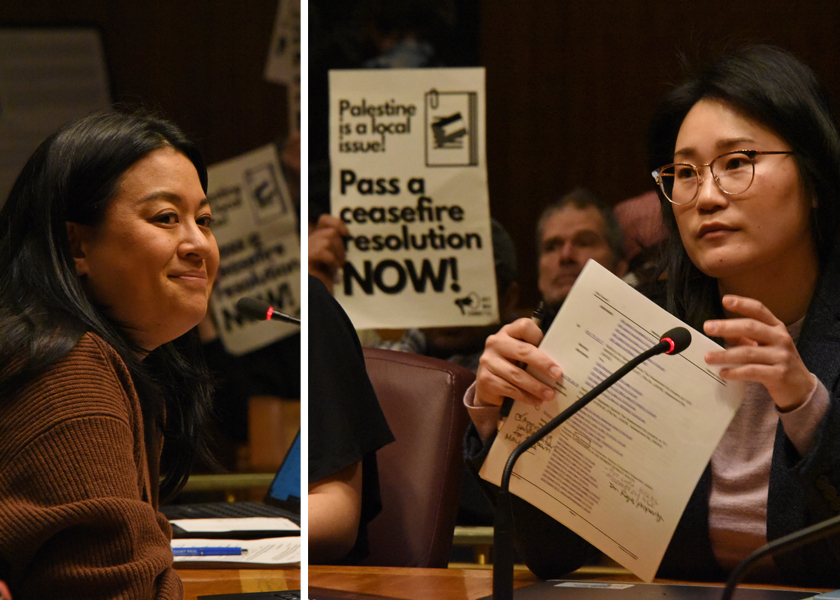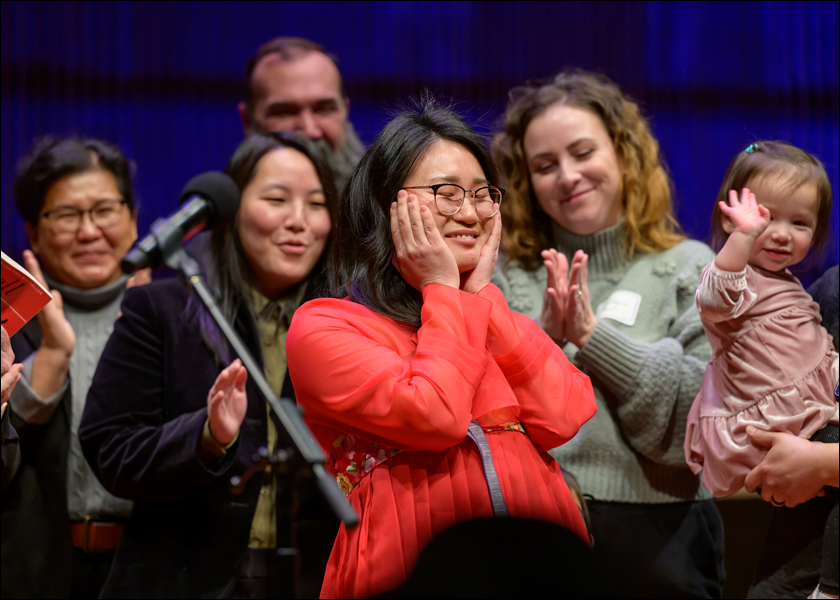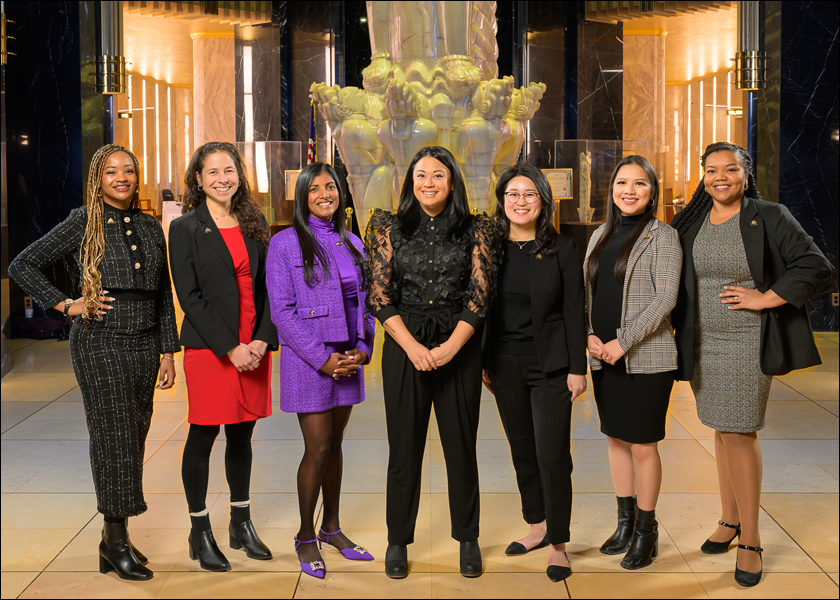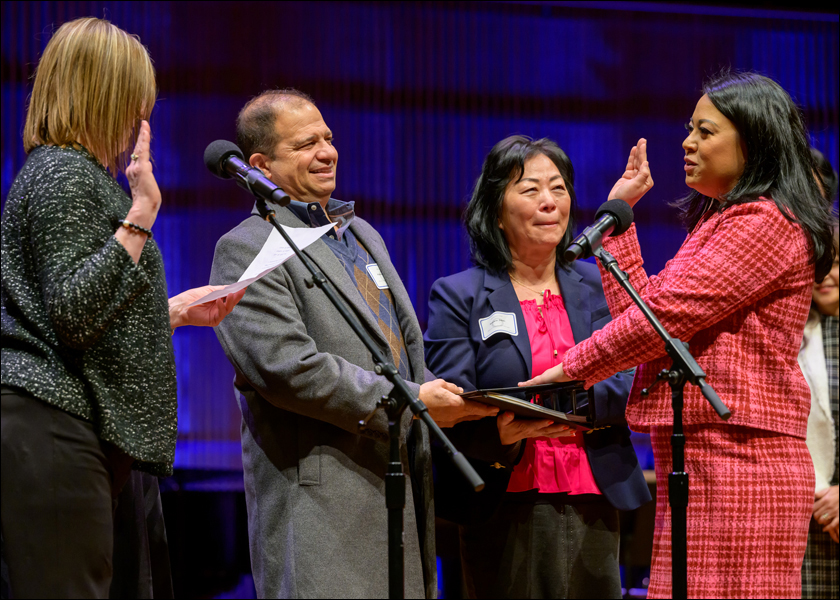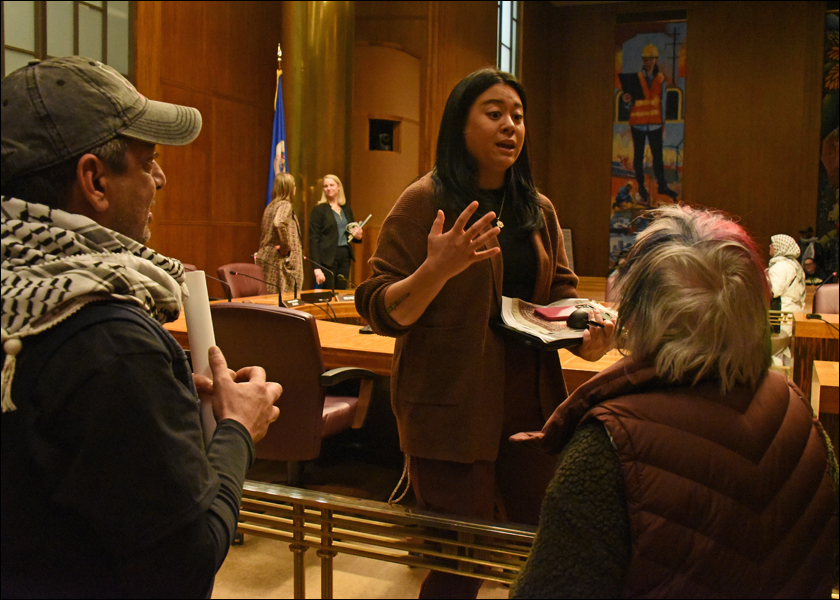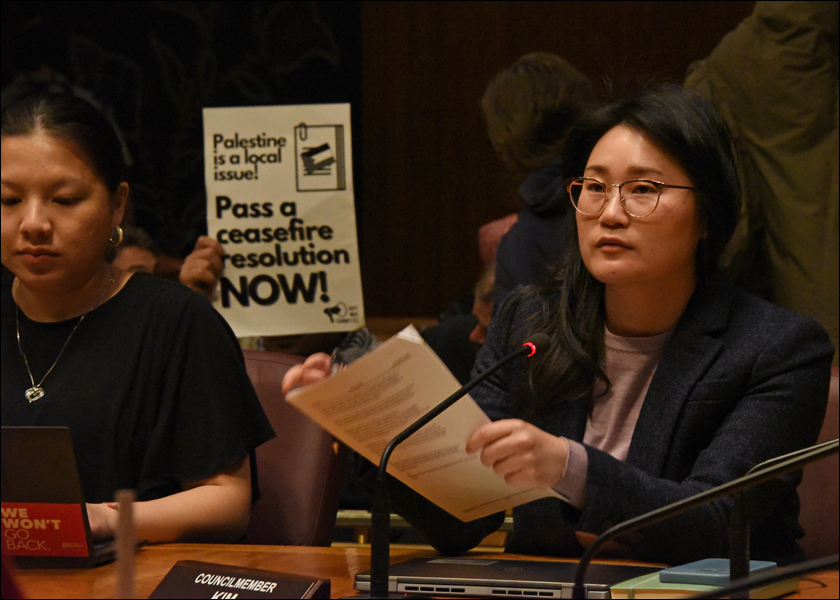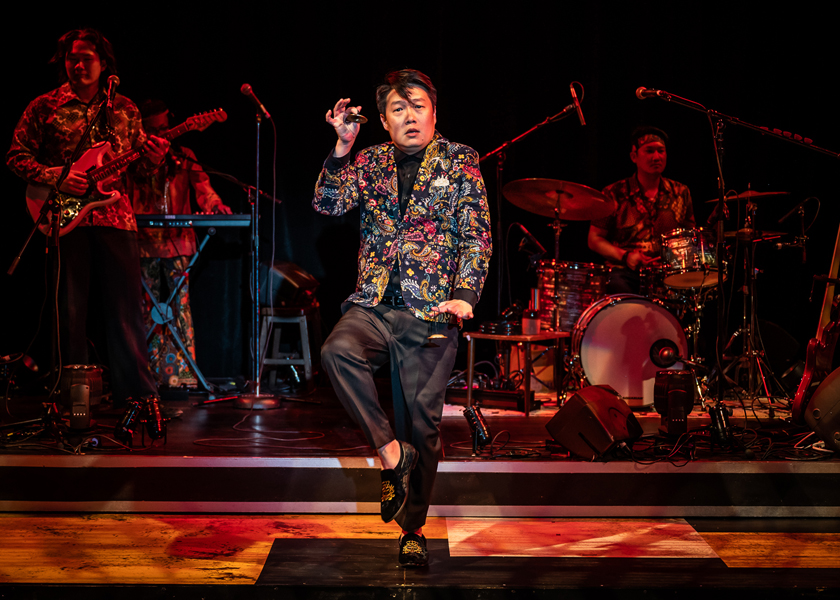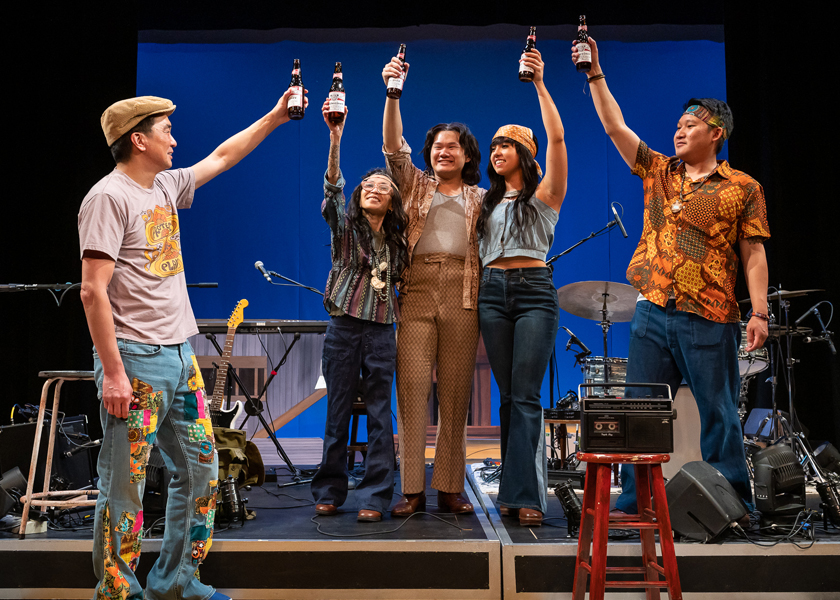Theater Mu explores a story of two women who look at the future and see each other there | By Joanne Rhim Lee (Fall 2025 issue)
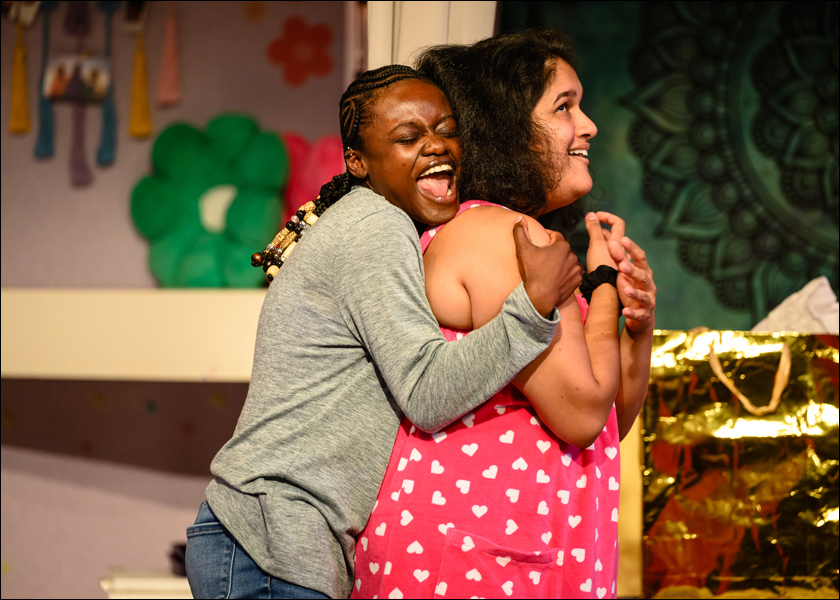
Maybe You Could Love Me, by Samah Meghjee, directed by Katie Bradley, September 11-28 ~ 2025, Theater Mu, Minneapolis
In the lighthearted opening scene of Theater Mu’s world premiere of Samah Meghjee’s Maybe You Could Love Me, 17-year-old best friends Noor and Sajida are helping Noor’s family host a bridal shower for her brother’s new wife. Neither girl has ever attended one, and their curiosity about the dozen or so gift bags they’ve been asked to store quickly gets the better of them.
Rule-following Sajida insists they shouldn’t touch the gift bags, but Noor convinces her there’s no harm in taking a peek. When they open a few gifts, the girls double over with laughter — how could Noor’s straightlaced Muslim family, and especially her older auntie, have chosen such risqué presents?
As they chase each other around Noor’s oversized teenage bedroom — walls plastered with pop-star posters, a canopy bed draped in sheer curtains, and clothes scattered in messy piles — they taunt each other with the fancy lingerie and bridal shower “toys,” setting the stage for what seems like a charming best-friend comedy.
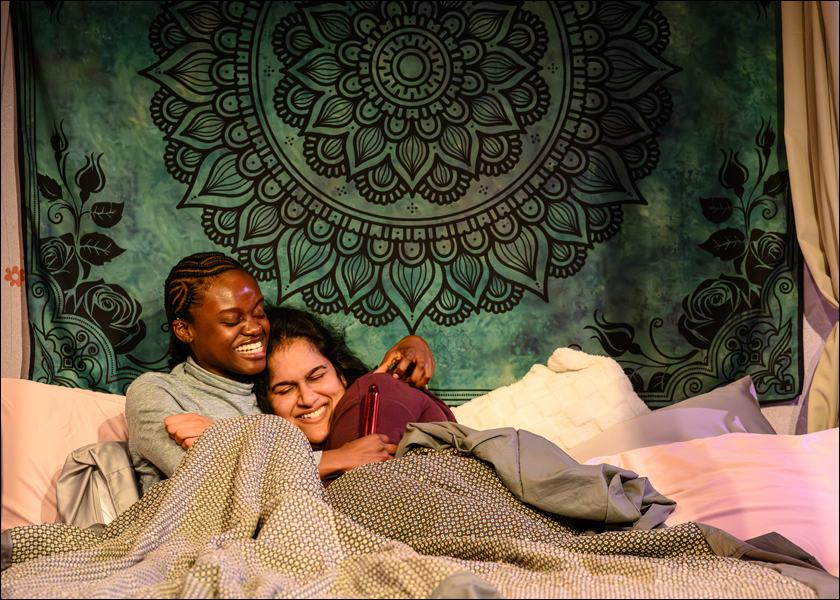
But when they turn off the lights and begin experimenting with some of the gifts, it soon becomes clear that Noor and Sajida are more than just friends, and that this is not just a lighthearted teenage comedy, but very much an adult love story as well.
Through a clever use of flashbacks, we see that the girls have been friends since they were nine years old, when Sajida and her single mother were welcomed by Noor’s family and their close-knit Muslim community in central Florida. The community is warm and affectionate, but with the adults preoccupied with their own responsibilities, the girls are left largely to their own devices.
As Noor and Sajida, actors Ashembaga Jaafaru and Sushma Saha change seamlessly from innocent young girls in pinafores to mischievous teenagers in more hip clothing, and finally to 27-year-old women in hijabs and professional wear. They literally change clothes on stage (wearing undergarments), but it’s their shifts in posture, tone, and mannerisms that make the transformations entirely believable.

Director and producer Katie Bradley, also a longtime Theater Mu actor and one of several Korean Americans whose work has been important to Theater Mu, has grown into a virtuoso conductor, drawing remarkable performances from her two-actor cast — roles that could easily have been divided among six performers at different ages.
The girls revel in their freedom, but looming over them is the unspoken reality that they are expected to soon enter into arranged marriages, as members of their traditional Muslim community, just like Noor’s brother. Is there any language or precedent for them to imagine a life together? Or is their joyful, laughter-filled bond just a fleeting childhood dalliance?
In the last extended flash-forward, we learn the answers to these questions, and the play’s catchy title comes into sharp focus. With this debut, emerging playwright Samah Meghjee delivers a bold, groundbreaking work that hits straight to the heart, as the chorus of sniffles on opening night made clear.

